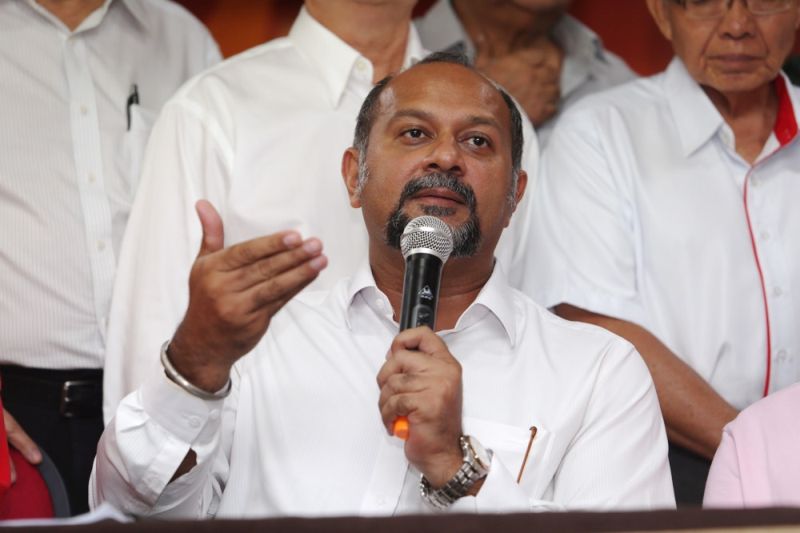KUALA LUMPUR, July 24 — Over 30 federal lawmakers from the federal Opposition today said their parliamentary questions on the 1Malaysia Development Berhad (1MDB) and related issues have been rejected.
The MPs also want a guarantee that there will be a debate in Parliament after they submit a parliamentary motion on the same issues.
DAP’s Puchong MP Gobind Singh Deo, whose question on the status of investigations on 1MDB and the SRC International Sdn Bhd cases and the action to be taken was turned down, agreed that the Speaker’s role should be reviewed.
“What is the Speaker’s role? His role as Speaker is to facilitate debate in Parliament, these questions are to be answered in written replies,” he told reporters, adding that it would have been a “golden opportunity” for the prime minister to address the questions in Parliament.
Gobind said Opposition MPs will file a motion on the rejected questions and urged for the Speaker to give Opposition MPs a chance to debate the motion.
Earlier today, DAP’s Gelang Patah MP Lim Kit Siang had asked the Speaker for an “assurance” that there will be a debate in the Dewan Rakyat if all MPs’ voiced their objection in a motion.
“We will ask all those who have been rejected to come together to submit a motion of disagreement and for review under Standing Orders 44, 30, 40 and 50 and there needs to be a debate. Cannot give notice, but there is no debate,” Lim told the lower house of Parliament.
Parliamentary motions are only dealt with after Bills are debated and passed, but most such motions are not debated due to lack of time in parliamentary proceedings. There are six Bills for proposed law changes and 28 motions by both the government and individual MPs in today’s Order Paper.
Among MPs who raised the questions are PKR president Datuk Seri Dr Wan Azizah Wan Ismail who wanted to ask if there will be a White Paper on alleged foreign intervention in 1MDB investigations, Amanah MP Datuk Mujahid Yusof Rawa and PAS MP Datuk Mahfuz Omar.
The MPs showed the media the individual letters from the Dewan Rakyat secretary informing them that their proposed oral questions were rejected.
Among the standing orders cited as the reasons for the rejections are the Dewan Rakyat’s Standing Orders 23(1)(c), 23(1)(g) and 23(1)(h).
Standing Order 23(1)(c) requires parliamentary questions to “not contain any argument, interference, opinion, imputation, epithet or misleading, ironical or offensive expression” or to be frivolous or seek information on trivial matters.
Standing Order 23(1)(g) requires parliamentary questions to not be drafted in a way that is “likely to prejudice a case under trial” or to ask on any matter which is sub judice; while Standing Order 23(1)(h) requires parliamentary questions to not be asked for the purpose of “obtaining an expression of opinion, the solution of an abstract legal case or the answer to a hypothetical proposition”.



















